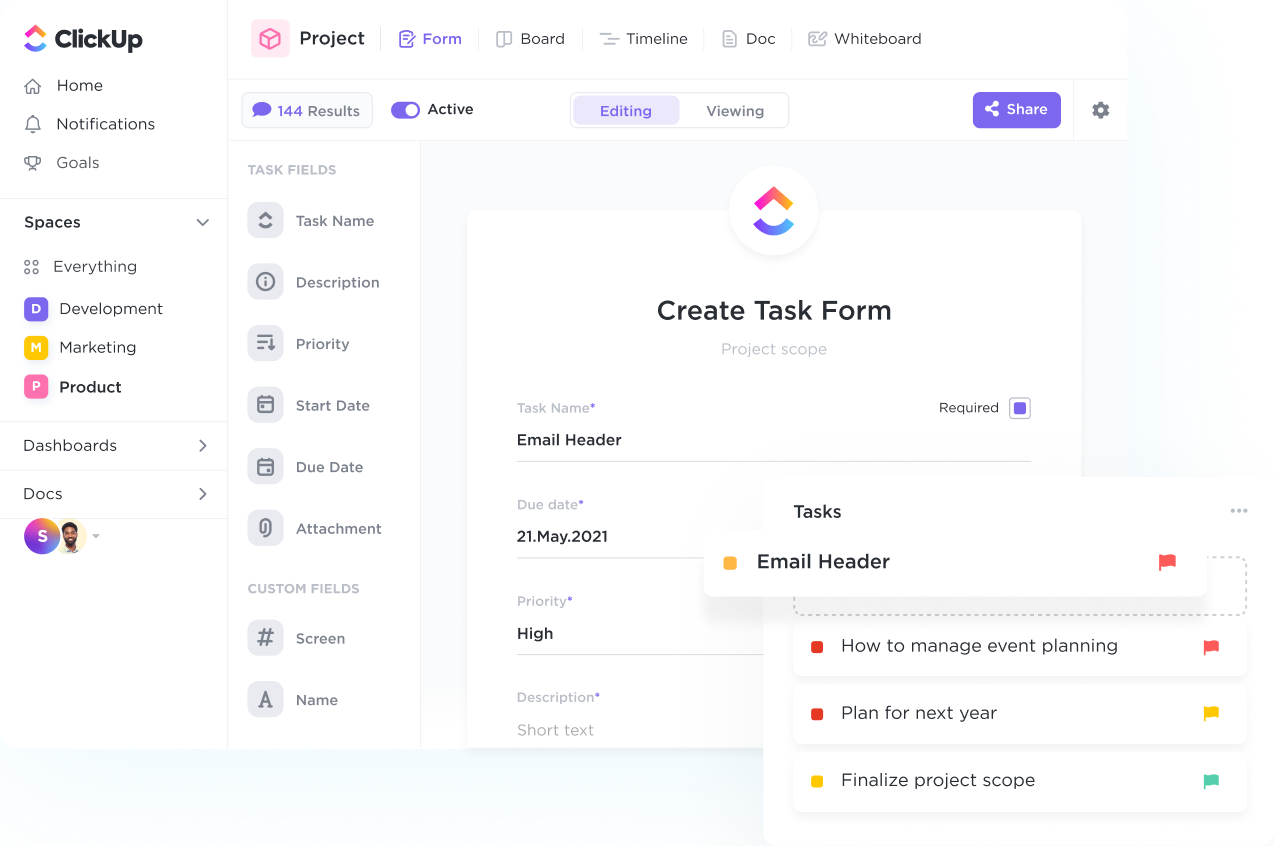Onboard customers and collect info in a snap.
Streamline your intake process, organize response data, and automatically create tasks with custom branded Forms powered by conditional logic.

Revolutionize your market research process with ClickUp's customizable CRM system. Streamline data organization, enhance client communication, and boost efficiency all in one platform. Say goodbye to scattered information and hello to a seamless CRM experience with ClickUp.
Free forever.
No credit card.
Trusted by the world’s leading businesses
Streamline your intake process, organize response data, and automatically create tasks with custom branded Forms powered by conditional logic.

Create your ideal system to store and analyze contacts, customers, and deals. Add links between tasks, documents, and more to easily track all your related work.

CRMs assist market researchers in capturing leads from various sources, categorizing them based on predefined criteria, and nurturing them through the research process. By tracking leads' interactions and behaviors, researchers can prioritize follow-ups and focus on high-potential leads.
Market researchers can utilize CRMs to segment customers based on demographics, behaviors, or preferences. By grouping customers into specific segments, researchers can tailor their research strategies and target different customer segments effectively. This segmentation allows for personalized and targeted research initiatives.
CRMs help market researchers track and analyze how customers engage with their research efforts. By understanding customer behavior patterns, researchers can gain insights into preferences, motivations, and trends. This analysis enables researchers to optimize their research techniques and strategies to better meet customer needs.
CRMs enable market researchers to gather and organize customer feedback efficiently. By centralizing feedback collection, researchers can easily analyze trends, identify areas for improvement, and make data-driven decisions. Managing feedback effectively helps in enhancing research methodologies and meeting customer expectations.
CRMs provide platforms for seamless communication and collaboration among research team members. By sharing insights, analysis, and updates within the CRM system, researchers can work together more effectively. This collaboration fosters knowledge sharing, enhances team efficiency, and ensures everyone stays aligned on research goals.
CRMs offer real-time data visualization tools that help market researchers monitor key performance metrics. By providing an overview of research progress, participant engagement, and other relevant data, performance dashboards enable researchers to make informed decisions and adjustments to their research strategies.
CRM software helps market researchers by centralizing data from various sources, providing insights into customer behavior and preferences, enabling efficient data organization, segmentation, and analysis for more informed decision-making.
Key features of CRM software that are most beneficial for market researchers include advanced data analytics capabilities, customizable reporting tools, integration with survey and feedback tools, lead tracking and scoring functionalities, and segmentation tools for targeted analysis.
Yes, CRM software can integrate with various market research tools and platforms, streamlining data collection and analysis processes through centralized data management, automated insights generation, and improved collaboration among teams.